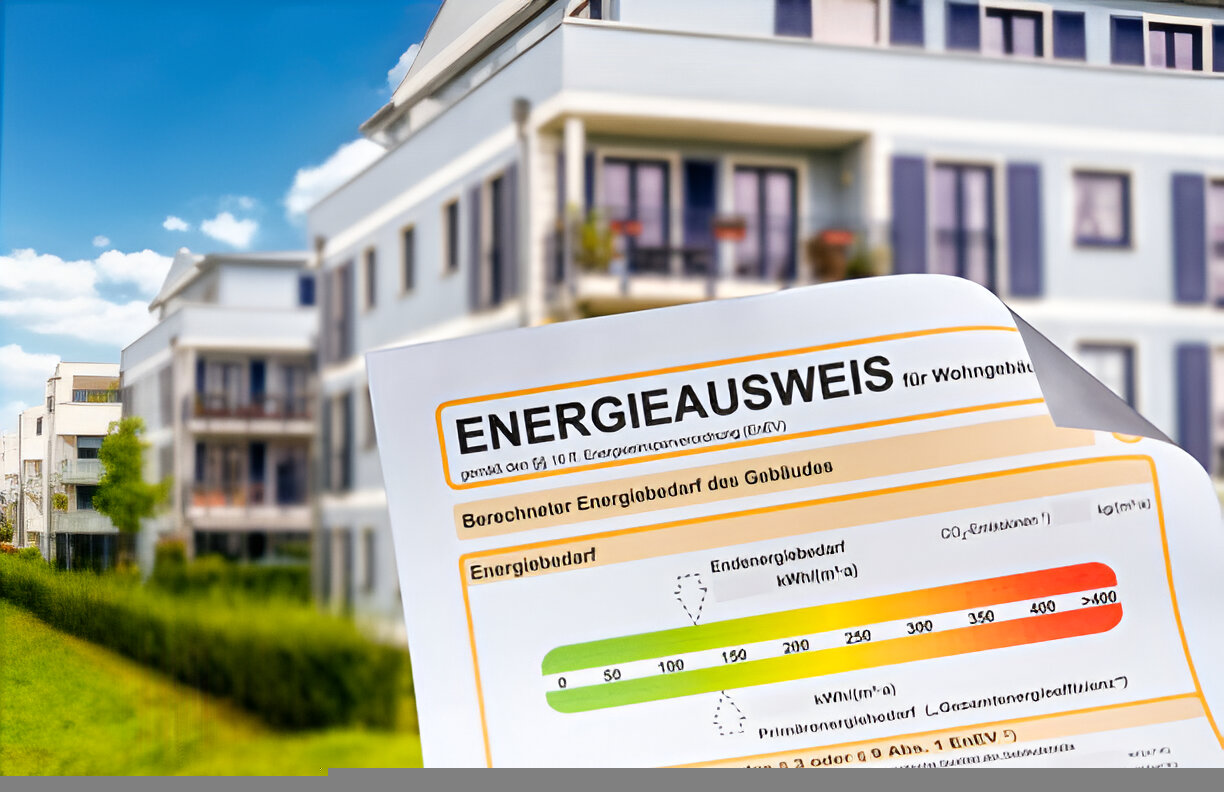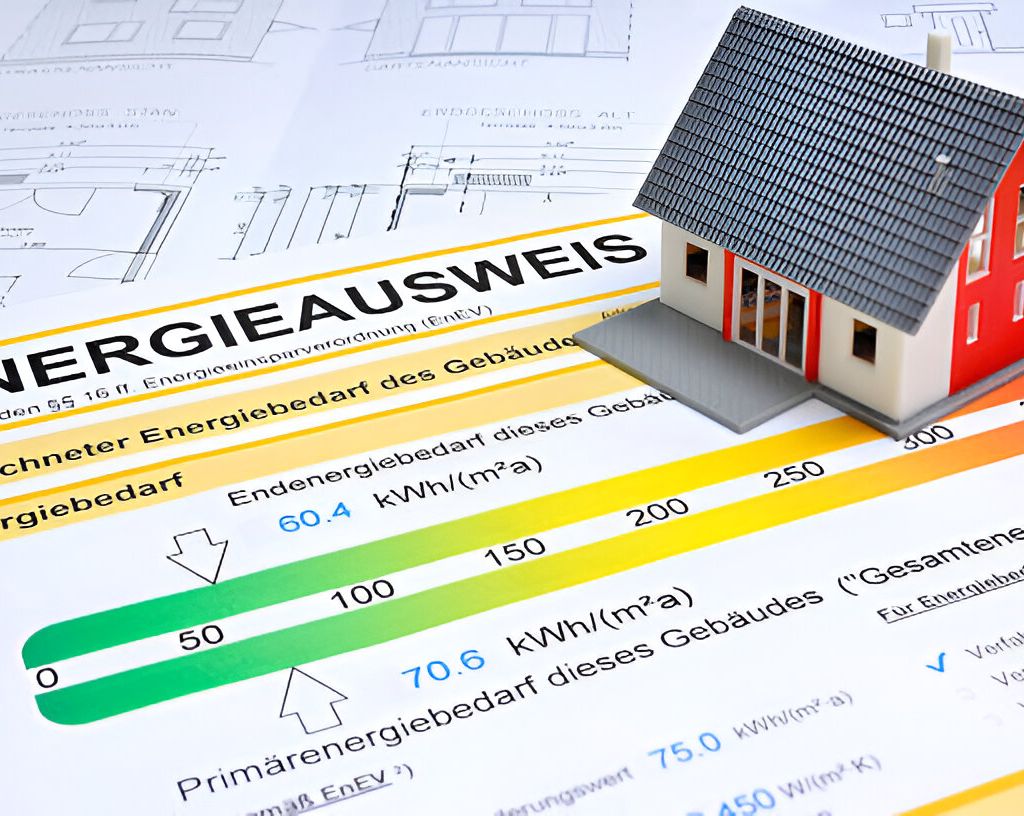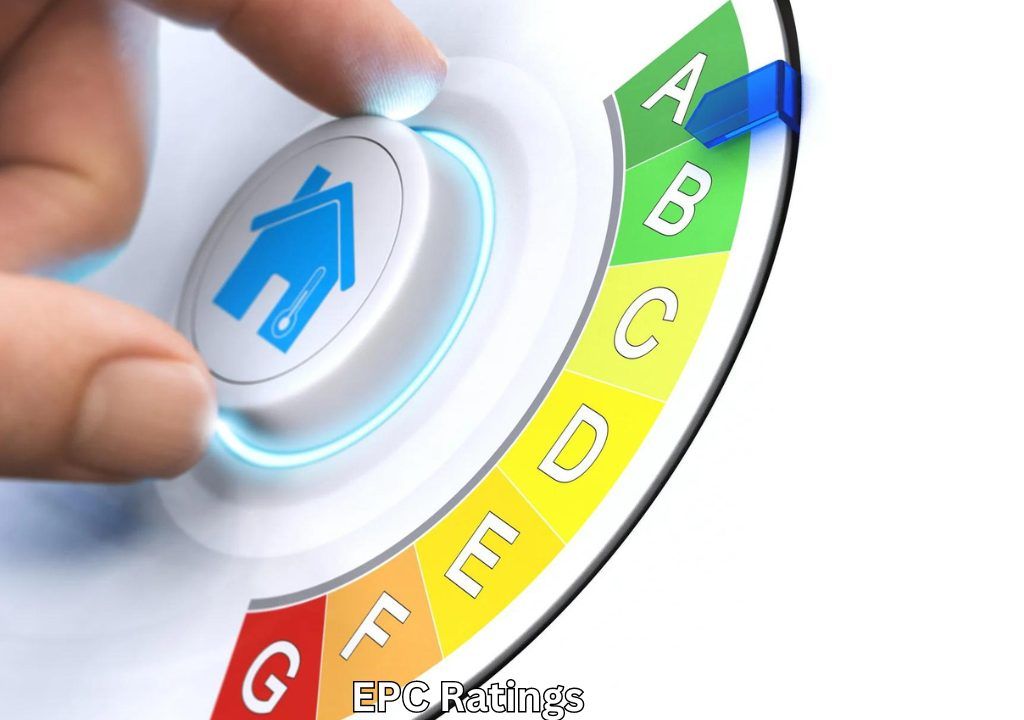
The Energy Performance Certificate (EPC) serves a crucial role in evaluating the energy efficiency of properties. It provides essential information regarding energy consumption and carbon emissions, which can influence marketability for sellers and guide potential buyers. The purpose of EPC is not only to assess energy performance but also to inform decisions that promote sustainability and cost savings. Understanding the intricacies of the EPC and its implications is essential for stakeholders in the property market. However, many may not fully grasp the nuances of how these ratings are calculated or their broader impact on property value.
Key Takeaways
- The EPC evaluates energy efficiency in properties, providing a standardized assessment of energy consumption and carbon emissions.
- It enhances sellers’ marketability and offers buyers insights into potential energy costs.
- The certificate outlines recommendations for improving energy efficiency, which may increase property value.
- EPCs are required by law for property sales and rentals, ensuring regulatory compliance for owners.
- They demonstrate a commitment to energy conservation and responsible property management practices.
What Is an Energy Performance Certificate (EPC)?
An Energy Performance Certificate (EPC) is an essential tool for evaluating the energy efficiency of residential and commercial properties.
The EPC provides a standardized assessment, indicating a property’s energy consumption and carbon dioxide emissions. This assessment is quantified using a scale from A to G, where A signifies the highest efficiency and G the lowest.

The certificate is derived from a thorough evaluation conducted by qualified assessors, who analyze factors such as insulation, heating systems, and energy use.
Accompanying the rating, the EPC outlines recommendations for improving efficiency, potentially enhancing the property’s market value, and reducing energy costs.
Consequently, the EPC plays a critical role in informing stakeholders about energy performance, facilitating informed decision-making in property transactions.
Why Do You Need an EPC?
Understanding the necessity of an Energy Performance Certificate (EPC) is essential for property owners and prospective buyers alike. An EPC serves as a regulatory framework that informs stakeholders about a property’s energy efficiency and environmental impact.
For sellers, possessing a valid EPC can enhance marketability and compliance with legal requirements. Buyers benefit from the certificate as it provides insight into potential energy costs and informs investment decisions.
Furthermore, an EPC can indicate areas for improvement, potentially leading to increased property value. In a landscape increasingly focused on sustainability, having an EPC demonstrates a commitment to energy conservation and responsible property management.
Consequently, the EPC is a critical tool for informed decision-making in real estate transactions.
How Is an EPC Rating Calculated?
The calculation of an Energy Performance Certificate (EPC) rating involves a thorough assessment of various factors related to a property’s energy efficiency.
Key factors include the construction materials, insulation levels, heating systems, and the presence of renewable energy technologies.

Energy assessors utilize standardized software to analyze these components, producing a detailed evaluation of the property’s energy consumption and carbon emissions.
The overall performance is quantified through a scoring system, which reflects the energy efficiency of the building.
This score is then translated into a rating on a scale ranging from A (most efficient) to G (least efficient).
Understanding the EPC Rating Scale
EPC ratings are categorized on a scale from A to G, providing a clear framework for evaluating a property’s energy efficiency. An ‘A’ rating signifies exceptional energy performance, indicating minimal environmental impact and lower utility costs.
Conversely, a ‘G’ rating denotes poor energy efficiency, resulting in higher energy consumption and ecological consequences. The scale is instrumental for prospective buyers and tenants, facilitating informed decisions regarding energy expenditures and sustainability.

Additionally, properties with higher ratings often experience increased market value and attractiveness in competitive real estate landscapes. Understanding this scale is essential for stakeholders aiming to optimize energy performance and adhere to regulatory standards, ultimately contributing to broader environmental goals.
It serves as a benchmark for evaluating energy efficiency improvements.
How to Improve Your Property’s Energy Rating
Numerous strategies exist for enhancing a property’s energy rating, each targeting specific aspects of energy consumption and efficiency.
Implementing these methods can lead to significant improvements in energy performance and sustainability.
- Upgrade Insulation: Enhance walls, roofs, and floors to minimize heat loss.
- Install Energy-Efficient Windows: Utilize double or triple glazing to reduce thermal transfer.
- Optimize Heating Systems: Invest in modern boilers or heat pumps that utilize less energy.
- Incorporate *Renewable Energy Sources: Consider solar panels or wind turbines to generate clean energy.
- Use *Smart Home Technology: Employ smart thermostats and energy management systems for efficient energy use.
Who Needs an EPC in the UK?
While many property owners may overlook the importance of an Energy Performance Certificate (EPC), it is a crucial document for anyone involved in the sale or rental of residential and commercial properties in the UK.
Landlords must obtain an EPC before letting a property, ensuring compliance with regulations aimed at improving energy efficiency. Homeowners planning to sell their properties are similarly required to secure an EPC, as it informs potential buyers about energy costs and environmental impact.

Additionally, commercial property owners must provide an EPC for new leases or sales. Failure to acquire this certificate can result in significant penalties, emphasizing its necessity for legal compliance and informed decision-making in the real estate market.
How to Book a Certified EPC Assessor
Booking a certified EPC assessor involves a systematic approach to confirm compliance and accuracy. To guarantee a successful engagement, individuals should consider the following steps:
- Research Credentials: Verify that the assessor holds appropriate certification and training.
- Request Recommendations: Seek referrals from trusted sources or industry professionals to identify reputable assessors.
- Compare Quotes: Obtain multiple estimates to understand the market rate and service offerings.
- Review Experience: Assess the assessor’s experience with properties similar to yours, confirming they are well-versed in specific requirements.
- Schedule a Consultation: Arrange a preliminary meeting to discuss expectations and clarify any questions.
About the Author: LandlordCertificate
Related Posts
Get Social
Recent Posts
- Asbestos Management Survey London: Update Your Property Records
- Gas Safety Certificate London: Why Regular Checks Save Money Long-Term
- FRA London Explained: How a Professional Fire Risk Assessment Keeps You Compliant and Safe
- When a New Tenancy Requires Your EICR Certificate London Renewal
- Fire Safety Certificate London: Integrating Fire Alarms and Emergency Lighting













